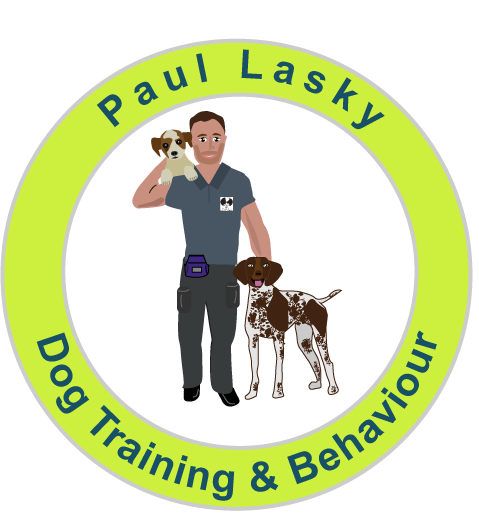Training versus Behaviour
This article is a guide to help focus your mind on what you actually need. The world of dog training is split into two main areas and it can sometimes be confusing. It need not be! Please read on.
Dog training covers training dogs to do new behaviours. This is generally in the absence of any major behavioural problems. This would include puppies who need training from scratch and adult dogs who have not had much training yet. I will give some examples:
A puppy needs to learn to stay on the floor and not jump up when saying hello. This is training.
A 1 year old dog needs to learn to stay on the floor and not to jump up when saying hello, as it has previously been stroked for jumping up and finds it rewarding. This is training.
A 5 year old dog needs to learn how to retrieve items, as his mum has developed mobility issues in her back and can't bend down. This is training.
Yes, you can teach an old dog new tricks. As you may have gleaned from the above, training is teaching a dog a new behaviour where not much has gone wrong in the dog's life. This can include undoing some unwanted learning, like in the case of the 1 year old dog who is jumping up simply because it has learnt that this gets strokes.
So what about behaviour?
Behaviour cases would be required instead of training, where a dog has developed a behavioural issue. I will give you a few examples:
A dog is lunging and attempting to bite strangers. This is behaviour.
A dog is lunging and attempting to bite other dogs. This is behaviour.
A dog is petrified of everyday life and cannot function normally. This is behaviour.
A 1 year old large breed's puppy biting has developed to a heavy bite and is now causing major bruising and frightening people. This is behaviour.
A dog has bitten someone and the reason is not obvious to the owners. This is behaviour.
The question to ask yourself is, do I need to teach the dog something new? Or does my dog need genuine emotional help with something?
Note I used the word emotional there. Training deals with learning tasks, behaviour is much more about helping dogs with their emotions. In the example of the large breed whose puppy biting has progressed to heavy biting, this is now behaviour as heavy prolonged biting will generally indicate an underlying stress factor or health issue. And no the puppy is not being naughty or dominant.
An inexperienced trainer would come in and try to stop the heavy biting which could distress the dog or suppress the behaviour and make the problem much worse. A behaviourist would come in and diagnose the underlying cause so they could work on making the dog more comfortable.
This is why it is so important to hire someone who has the experience to be able to make the decision about whether they should be taking the job in the first place and the ability to diagnose the cause. Likewise, in the case of a dog who has bitten someone and the owners don't know why, this is a job for a behaviourist to diagnose why. There is always a reason and finding it just might save the dog from being put to sleep.
Treating genuine behavioural issues is like performing brain surgery on your dog. Do it wrong or get bad advice and you can easily make it much worse in a short space of time. This really is a life and death situation for your furry, much loved family members. There are many people claiming to be dog behaviourists who are not even qualified or accredited dog trainers. A trainer or behaviourist should have a quality mix of hands on experience and qualifications.
Paul Lasky has over 5 years experience in a busy rehoming kennels working with the most stressed dogs, is a fully assessed member of the APDT UK and is a student behaviourist to level 5 degree equivalent with straight A grades. Paul is also a member of the ABTC, ISAP and has a pending interview for the TCBTS. Degree level education is now the benchmark for behaviour qualifications and accreditation (not level 3 or below).
Beware of a trainer who says they can fix any problem on any dog. An initial enquiry phone call should be a two way conversation where the trainer finds out about the dog, it's issues and then decides if they can help and the owner can use the call to decide if they want to hire the trainer. Just like the medical world sometimes things needs to be referred to someone who has more experience in that area or someone who can prescribe medication.
Call me for a free and honest chat that will get you and your dog on the right path.


